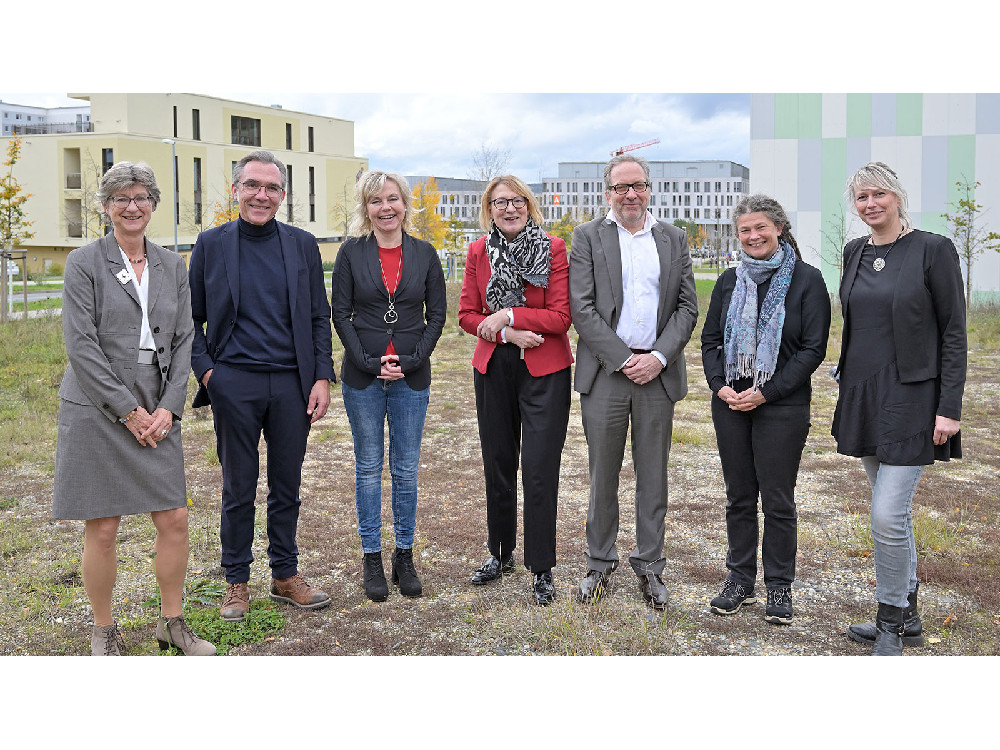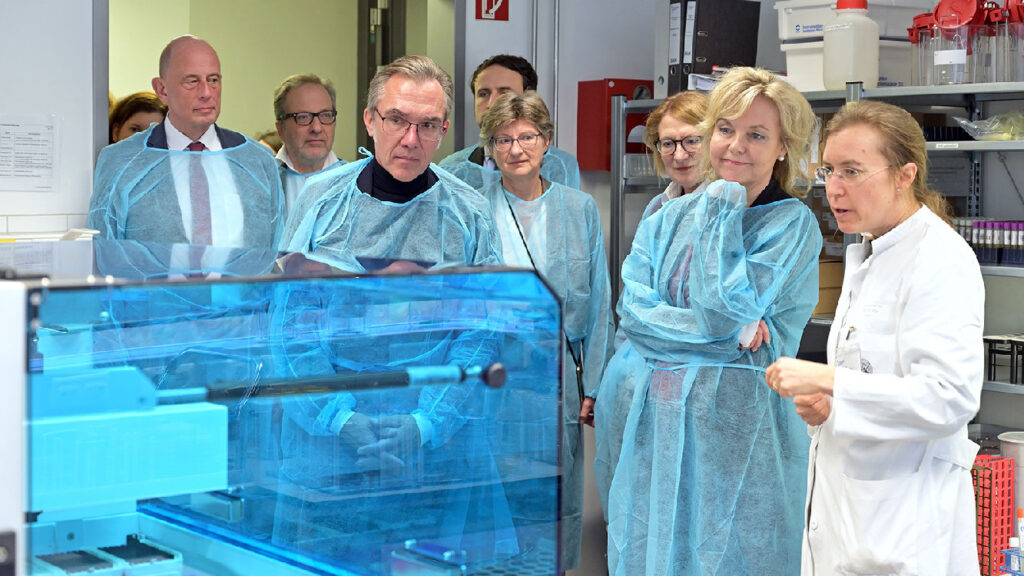
13 Nov Center for infection research with light
Optical methods measure quickly, sensitively and without contact. In combination with artificial intelligence, they can offer decisive time advantages in the treatment of life-threatening infectious diseases and enable precisely tailored therapies. To drive forward the development of these photonic processes, the German Federal Ministry of Education and Research (BMBF) will provide an infrastructure in the form of the Leibniz Center for Photonics in Infection Research (LPI) in Jena, in which the translation of research results into marketable products – the path from the laboratory to the hospital bed – will be considered from the outset and driven forward in a standardized process chain. The LPI is being launched by the Jena-based Leibniz Institutes of Photonic Technology (Leibniz IPHT) and Natural Product Research and Infection Biology (Leibniz HKI), Friedrich Schiller University Jena and Jena University Hospital.
Fast track from research to practice
Professor Sabine Döring, State Secretary at the BMBF, and Thuringia’s Minister for Economic Affairs, Science and Digital Society, Wolfgang Tiefensee, were informed about the status of the development of the globally unique infrastructure for translational research at Jena University Hospital on November 7, 2023. The most important goal of the LPI is to quickly transfer research results into practice and thus drastically shorten the development times of new drugs and therapies, said the Minister. “In this way, the center also provides impetus for more growth and employment in the healthcare industry and ultimately contributes to maintaining Germany’s technological sovereignty in drug development and infection research,” emphasized Tiefensee.
The LPI will be more than just a research institute. As a one-stop agency, it will combine research, technology development and everyday clinical practice, providing an infrastructure in which all the steps necessary for product development are interlinked – from validation on patient samples to support in product design and small series production. The facility will be open to the national and international scientific community and will also enable small and medium-sized companies and start-ups to achieve valid results more quickly. According to the institute, industry and authorities will be involved from the outset to ensure the smooth market entry of new diagnostic procedures and therapeutic approaches.

Prof. Bettina Löffler, Head of the Institute of Medical Microbiology at the UKJ (1st from right) and LPI spokesperson Prof. Jürgen Popp (3rd from left) introduce BMBF State Secretary Prof. Sabine Döring (2nd from right) and Economics Minister Wolfgang Tiefensee (1st from left) to a laboratory in the Medical Microbiology Department at the UKJ. Image: Michael Szabó / UKJ
Intensive care unit for new therapeutic approaches
The LPI’s close connection to Jena University Hospital is also crucial to the success of the holistic concept. Equipped with S2/S3 safety laboratories, the LPI building on the grounds of the UKJ will provide users with access to researched basic technologies as well as modern commercial optical and molecular technologies.
In addition, the LPI will provide a fundamentally new infrastructure in the intensive care unit with a first-in-patient unit (FiPU). This offers life-threatening patients the opportunity to take advantage of life-saving solutions that are still being researched or tested on the market. The design planning for the FiPU is currently underway; construction work is scheduled to begin in early 2024.
Parallel to the development of the technological infrastructure and the establishment of new spectral optical imaging technologies and chip-based methods, the management and governance structures of the LPI are currently being created and the preliminary planning for the construction is being driven forward. The client is the University Hospital.
Source: www.leibniz-ipht.de
Image: Michael Szabó / UKJ






